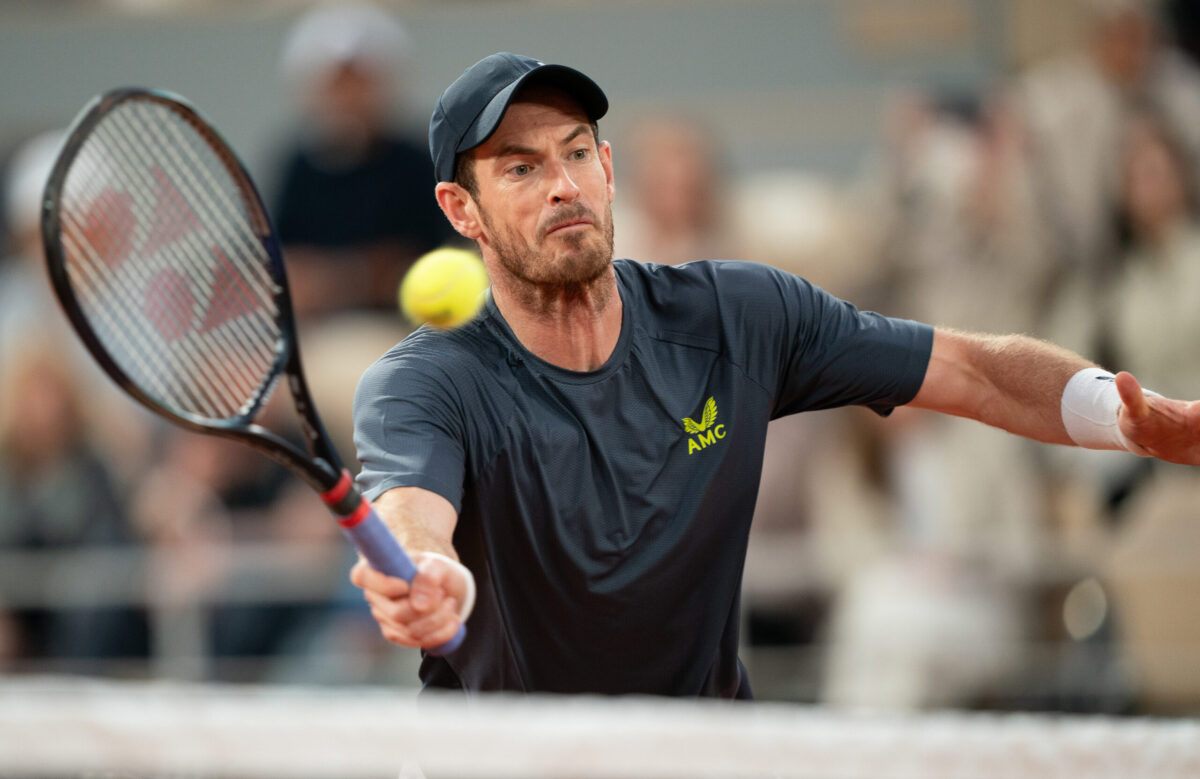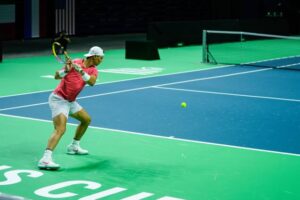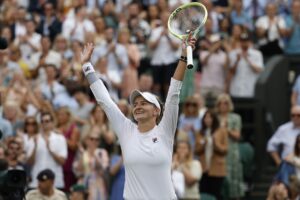After nineteen years, two Olympic Gold Medals, three Grand Slams, a Davis Cup, an ATP Finals and forty-six singles titles, Andy Murray will hang up his racket and close a chapter as one of the all time greats. Defined in an era with three of the greatest men ever to pick up a racket, perhaps at times it’s felt as though he has been in their shadow and cruelly placed in a generation of players like no other.
Had he been born twenty years earlier it’s likely his Grand Slam title count would be in the double figures. Although, perhaps he would never have reached the same level in real terms, being around the greatest ever to play the game would have pushed him to find even higher levels.
However, it’s the Olympics where he holds the cards over Rafael Nadal, Roger Federer and Novak Djokovic. The two singles Gold Medals that Murray won in 2012 and 2016 are more than the three greats have managed combined over the years, with Nadal the only other player of the “Big Four” as it then was to win Olympic Gold in singles.
London 2012
Twelve years ago inLondon, Andy Murray announced himself as a champion. A straight sets loss to Roger Federer in the US Open final of 2008 was hard enough to take. He would then lose to the same man twice more, in Melbourne and most painfully of all on the hallowed lawns on Centre Court . Novak Djokovic also had one over him down under. Yes, he could compete with his three great rivals, but crucially he had not been able to beat them when it mattered most. But backed by a vocal crowd, he had the chance to change that in London.
Beating Stan Wawrinka Jarkko Nieminen and Nicolas Almagro in the opening three rounds, Murray settled nicely into the draw. The only man who looked likely to stand in his way was the second-seeded Djokovic. Djokovic may not have been the force then that he went on to become, but he was a Wimbledon champion and to beat him, Murray needed to bring his A-game. Murray showed little signs of nerves and delivering a masterful performance to beat Djokovic 7-5 7-5.
That victory earned him a chance at Gold just weeks after losing to Roger Federer in a heart-breaking Wimbledon final. At the Olympics, he stepped onto the same court, this time representing the colours of Great Britain, and avenged that loss, dropping just seven games in a dominant display that must surely rank amongst the finest of his career.
It was also turning point in the three-time Grand Slam Champion’s career. Many would argue it set the stage for the next twelve months when he would win his first two grand slams and reach yet another Australian Open final. A club of three welcomed a new member.
Rio 2016
By the time Brazil rolled around the vibe was entirely different. The then world #2 came into the tie as the favourite to defend his title – a position strengthened when Djokovic crashed out in his first match. It was part of a career-best season which saw him lift nine titles, reach twelve finals in the last thirteen events, finish on a twenty-four match winning streak and year end world number one.
Victor Trocki and Juan Monaco with the greatest of respect were never going to cause him too much trouble. The same would’ve thought to have been the case for Fabio Fognini and Steve Johnson however, Murray had to dig deep and dispose of both the Italian and American in three sets. Kei Nishikori, an awkward opponent at times for Murray throughout his career (who would defeat him just a month later at the US Open) stood in his way for a place in the final. Murray won with ease 6-1, 6-4.
An all-time classic with the so talented but injury-stricken Juan Martin del Potro saw a second Gold medal come to Great British Tennis in as many games. Murray became the first man to ever win two Olympic Gold medals on a singles court.
Tokyo 2020 and since
After the heroics of 2016 though, times had changed quite considerably for Andy Murray. A 2017 season riddled with discomfort saw Murray try to persevere the following season, playing the likes of Eastbourne, Washington and the US Open. However, an inability to recover saw him undergo metal-hip resurfacing.
Since then it’s been somewhat of a bumpy road. By his own admission, it hasn’t gone exactly as he planned for however there have been bright moments nonetheless. He was able to represent Great Britain in the previous Olympics and made the quarter-finals partnered with Joe Salisbury, the back end of 2019 he made deep runs in Beijing, Paris and lifted his last singles title to this date in Antwerp beating Stan Wawrinka. Not to mention the famous 2023 Australian Open where he defied all logic to complete a five set comeback against Thanasi Kokkinakis and backed it up with a run to the Qatar Final.
This season though it’s as if his body has broken down. Typically, the former two-time Gold Medalist still rallied on refusing to give up after an ankle injury and back surgery, but he concludes in a physical state to compete solely on the doubles court. He bowed out at SW19 in a doubles match with Jamie Murray where he was visibly stiff and hampered in movement.
One last dance?
In Paris though, he will partner world #59 Dan Evans. It’s a pairing that has taken to court together three times before most recently at Roland Garros this season where they lost in two tiebreaks against Sebastian Baez and Thiago Seyboth Wild.
On the same courts, this experience could prove to be invaluable. Moreover, it’s a partnership on paper that has the ingredients to excel. Murray’s solid baseline play and terrific touch paired with Evans’ great hand skills could be formidable. The only issue though is Dan Evans’s smaller frame which can be picked apart on a doubles court.
It will be interesting to see what sort of condition Murray is in. As mentioned, the Brit hasn’t caught a break this year with a clean bill of health deserting him at the most unfortunate of times. Since resurfacing his hip Murray has often decided against playing on the clay. A restricted range of movement and the physical toll on an already fragile body just hasn’t seemed worth it. He did win a Challenger title in Provence in France last season, Murray hasn’t won a tour-level match on the surface since in over seven years.
Yet that entirely misses the point of the upcoming Olympics. The man from Dunblane can no longer compete at the highest level, his body just won’t let him. This is about celebrating the career of a man who has battled the unthinkable to get to this stage. Many others would have called it a day long before, yet he kept on pushing trying to get that moment to make it all pay off. Whether that has come or not, only he could tell you personally. One thing is sure though, he can have no regrets on the effort front. So when he walks out for one last time he may not be a serious contender, but it’ll be a reminder of the player and man he is, and what we will sadly miss.
Main photo credit: Susan Mullane-USA TODAY Sports





